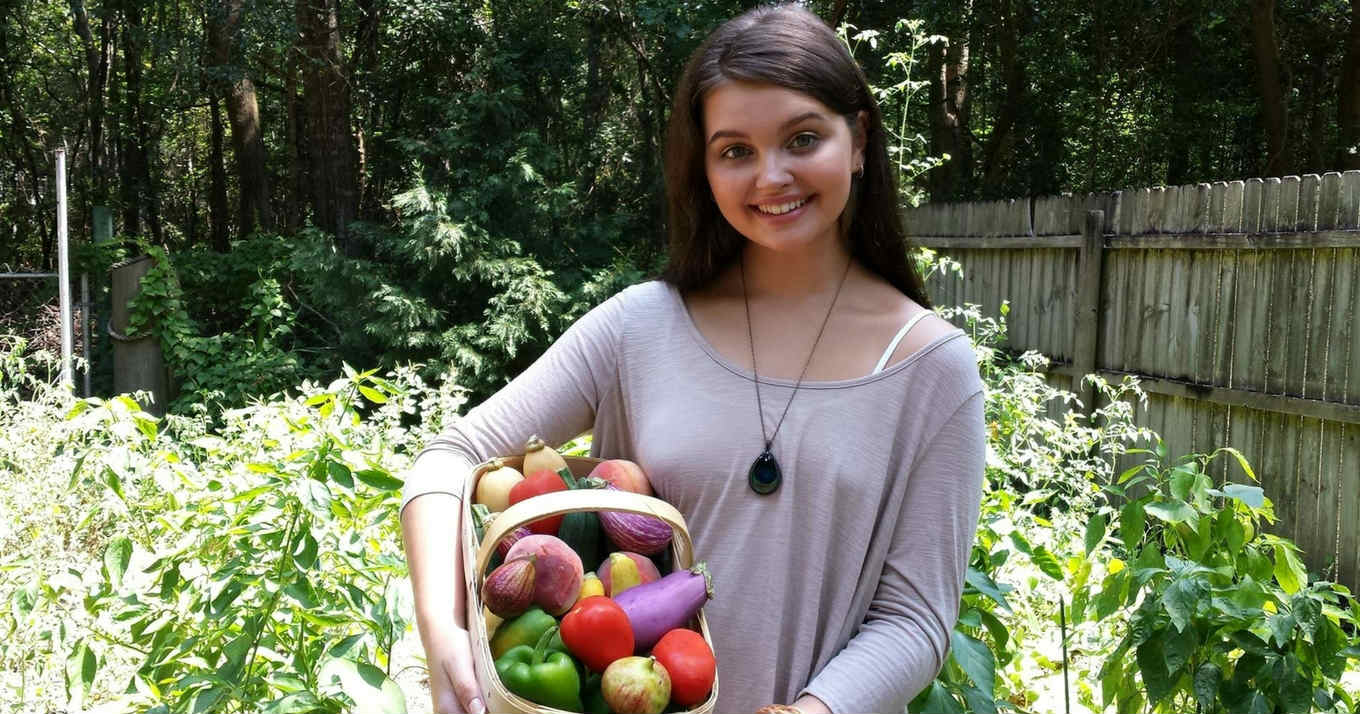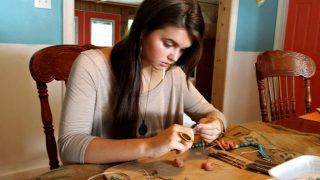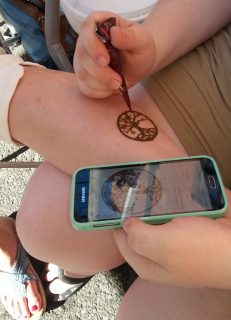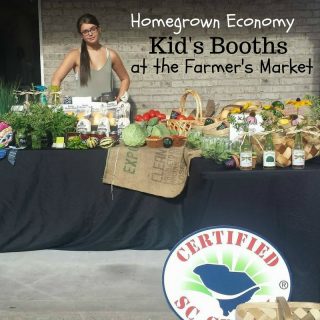
I met an acquaintance at my favorite farmer’s market booth a few weeks ago. She mentioned that she was “hanging out” and didn’t want to hover at her daughter’s booth.
Knowing her daughter was only twelve, I just had to know.
“Yes, it’s her second week of having her own booth! She’s selling these homemade bracelets for $5 apiece and she made $95 last week!” A proud mama right there, she started talking in animated tones about her daughter’s interpersonal interactions, the accounting skills she was developing, and the hard work of creating the product.

My kids became excited at the prospects and my curiosity was peaked so I began interviewing a few expert moms and kids. They loved sharing both the benefits and the precautions you need to know if considering a kid’s booth at the local farmer’s market.
Join us for Part 2 where we’ll talk about the considerations you need to make before registering at your local market.
Let’s start with the benefits of helping your child have a farmer’s market booth!
Interpersonal Interaction
My friend said that her daughter was initially shy with the adults visiting her farmer’s market booth. “She’s getting better at it with every customer,” my friend told me. Her mom is always nearby in case she needs to help out but her daughter is learning these skills by her own efforts.
Morgan Bradshaw is a fifteen year old (10th grader) that works four farmer’s markets a week with her mother’s help. In fact, they also run an online farmer’s market that serves seven South Carolina cities. Her mom (Amber from The Coastal Homestead) told me that Morgan’s interpersonal skills are well beyond her years as a result of these experiences.
Morgan herself said, “I have developed people skills communicating with the public. This is a lost skill that people my age normally don’t have because technology has replaced face to face communication. I have learned a lot about marketing, how to make something look nice to attract buyers, and how to perform direct sales. “
Organization
Raven Justice is an artist like Morgan but while Morgan sells textiles, Raven masterfully paints henna tattoos.

We chatted while she bent over my leg with her brush: “It’s a learn-by-experience thing. I had to learn to get more organized. In my first year, my booth was a mess. Every year I get more organized and make more money.” She also talked about the importance of the planning phase: “I always start planning my booth mid-(school) year.” Raven is in her fourth year of a farmer’s market booth and recently graduated high school.
Art and Marketable Skills
Raven said that she has been drawing since she was a little kid and learning to make a profit from her talent has been fun. In fact, she has a “real job” (as she called it) now but comes back because it gives her a creative outlet.
Morgan said, “Markets help you tap into your creativity and you can actually sell things you enjoy creating. Working at a market, selling a product I made or grew gives me a pleasure and satisfaction I couldn’t get by working for someone else.”
Income Stream
The kids all had to learn business sense: what it means to have overhead, losses, external circumstances (like bad weather), and an inconsistent income. They’ve had to develop marketing skills and evaluation skills to determine what sells best or works best. Raven referred to this when pointing to her sign; a vast improvement from her old ones she tells me.
If you want to see their eyes light up, ask them what they do with the money. Raven mentioned growing up with a single mom and how the farmer’s market booth gave her spending money when things were tight.
Morgan told me, “Last year the family really wanted to go to Disney World so we worked hard all summer to pay off our vacation. This year, I am saving for a car for when I turn 16 next spring.”
A Connection to Values and Ethics
Those Farmer’s Market people—theyz good people.
Your kids develop some healthy relationships and have meaningful conversations with the booths surrounding theirs. The kids also develop a passion for their own products and for how those products are produced or made.
Amber said this about her daughter’s ethics: “Morgan has been my partner in crime with the farmer’s markets since the beginning of the concept. She is very passionate about where her food comes from, the quality of it, and also about the products she uses on her body so working at a market made sense for her.”
Inspired? We are scheming now about growing plant starts for next year’s market—we’ll take Raven’s advice and start planning early.
But that isn’t all that we have to learn about the subject. Check in for Part 2 of this series where we talk about the considerations you need to make before signing your kids up for a booth.

 |
















Leave a Reply